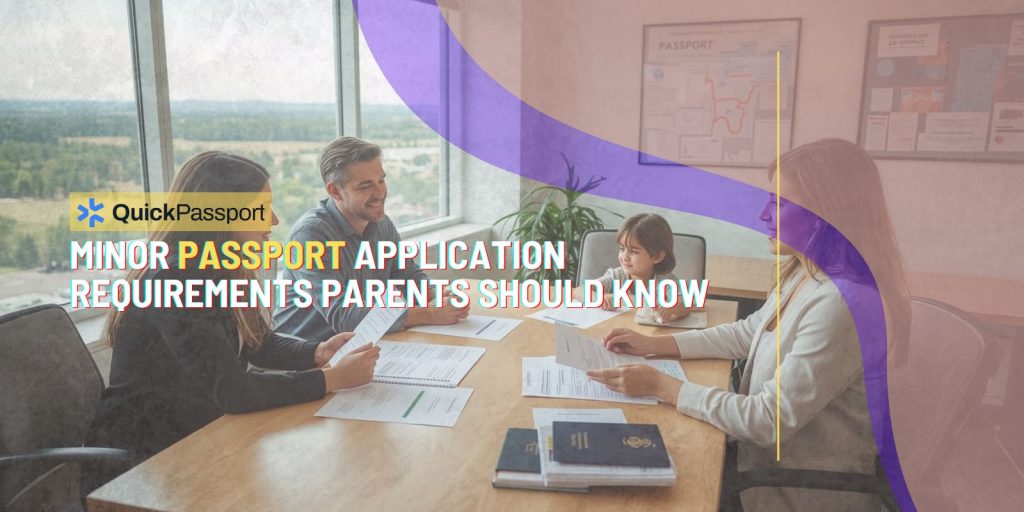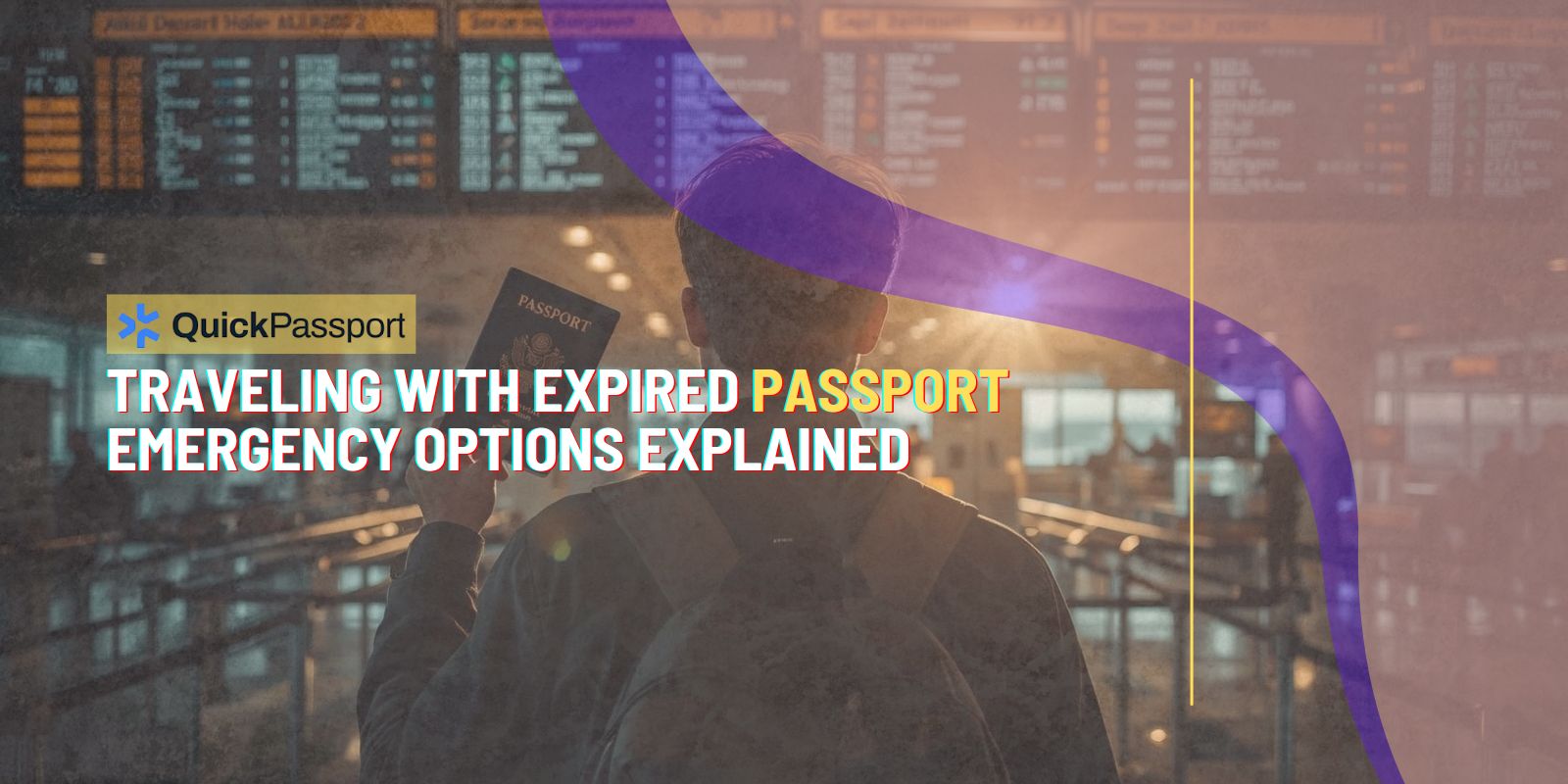Applying for a minor’s passport can feel overwhelming for parents navigating the process for the first time. Unlike adult passport applications, minor passport application requirements parents must follow involve additional documentation, specific consent procedures, and unique considerations that protect children’s welfare. Understanding these requirements beforehand can save families time, prevent delays, and ensure a smooth application experience.
The minor passport application process differs significantly from adult applications due to federal regulations designed to prevent child abduction and unauthorized travel. Parents must provide extensive documentation proving their relationship to the child, demonstrate legal authority to apply for the passport, and in many cases, both parents must be present during the application process. These safeguards, while sometimes inconvenient, serve the crucial purpose of protecting minors from potential harm.
For families planning international travel, understanding these requirements becomes even more critical. Last-minute passport applications can be stressful and expensive, particularly when dealing with minor passport application requirements parents may not have anticipated. Many families discover too late that certain documents are missing or that additional steps are required, potentially jeopardizing travel plans.
The complexity of minor passport applications extends beyond simple paperwork. Parents must navigate varying requirements based on the child’s age, family circumstances, and specific situations such as sole custody, adoption, or name changes. Each scenario may require different documentation and procedures, making it essential for parents to thoroughly understand what applies to their particular situation.
Professional passport services can provide invaluable assistance during this process, helping families identify exactly what documentation they need and ensuring all requirements are met before submission. This guidance can be particularly beneficial for families with complex circumstances or those facing tight travel deadlines.
Key Takeaways
- Both parents typically must appear in person when applying for a minor’s passport, with limited exceptions for specific circumstances such as sole custody or when one parent provides notarized consent
- Extensive documentation is required including the child’s birth certificate, parents’ identification, proof of parental relationship, and in some cases, court orders or adoption papers
- Age-specific requirements apply with different rules for children under 16 versus those 16-17 years old, affecting everything from application forms to renewal procedures
- Processing times are longer than adult passports due to additional verification steps, making early application crucial for families with travel plans
- Consent requirements vary by family situation including special procedures for divorced parents, single parents, or families with custody arrangements
- Emergency situations require expedited processing which involves additional fees and documentation but can significantly reduce waiting times
- Professional assistance can streamline the process by ensuring all documentation is complete and properly prepared before submission
- Renewal requirements differ from initial applications with some simplified procedures available for certain age groups and circumstances
Understanding Minor Passport Application Basics
The foundation of minor passport application requirements parents must understand begins with recognizing that children under 18 are considered minors for passport purposes, but the specific requirements vary depending on whether the child is under 16 or between 16-17 years old. This age distinction affects everything from which forms to complete to who must be present during the application process.
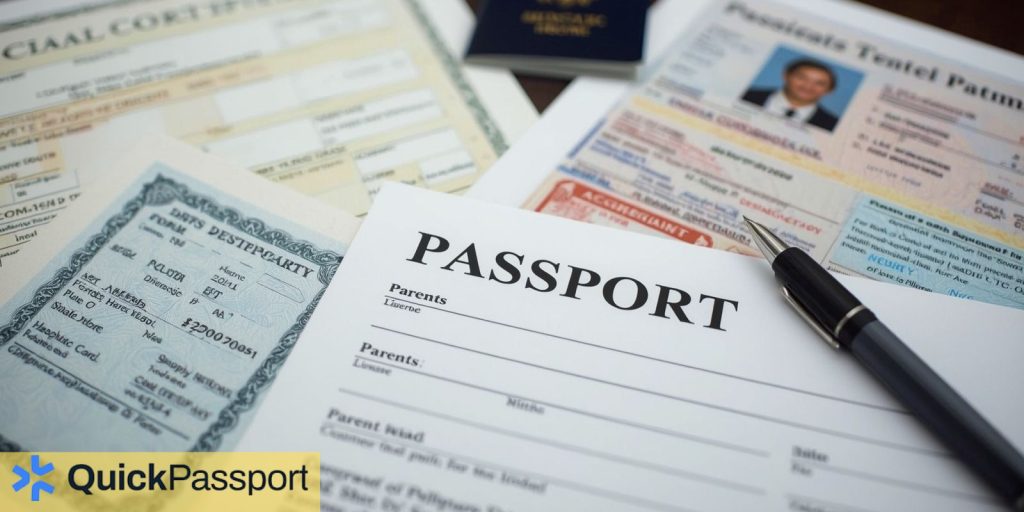
For children under 16, both parents or legal guardians must typically appear in person with the child when submitting the passport application. This requirement stems from federal regulations designed to prevent international child abduction and ensure that both parents consent to the child receiving a passport. The in-person appearance allows passport officials to verify identities, confirm parental relationships, and ensure all parties understand the implications of issuing the passport.
The minor passport application process requires specific forms that differ from adult applications. Form DS-11 is used for first-time passport applications for minors, and this form must be completed but not signed until the family appears before an authorized passport acceptance agent. This ensures that the signature occurs in the presence of an official who can verify the applicant’s identity.
Documentation requirements for minor passports are more extensive than adult applications. Parents must provide proof of the child’s U.S. citizenship, typically through a certified birth certificate issued by the state, county, or city where the child was born. Hospital birth certificates are not acceptable, and the birth certificate must list both parents’ names to establish the parental relationship clearly.
Identification requirements extend to both the child and the parents. While very young children may not have government-issued photo identification, they must still be present for the application. Parents must provide valid government-issued photo identification such as a driver’s license, military ID, or current passport. If a parent lacks proper identification, alternative documentation procedures may apply, though these can significantly complicate the process.
Parental Consent and Presence Requirements
One of the most complex aspects of minor passport application requirements parents encounter involves consent and presence rules. The standard requirement mandates that both parents appear in person with the child when applying for the passport. This rule applies regardless of whether the parents are married, divorced, separated, or never married, as long as both parents are listed on the child’s birth certificate.
However, the minor passport application process recognizes that requiring both parents to appear isn’t always practical or possible. In situations where one parent cannot appear, that parent may provide a notarized Statement of Consent (Form DS-3053). This form must be notarized and include a photocopy of the non-appearing parent’s government-issued photo identification. The notarization must be recent, typically within three months of the application submission.
Sole custody situations require different documentation entirely. When one parent has sole legal custody of the child, they may apply for the passport without the other parent’s consent, but they must provide court documentation establishing sole custody. A divorce decree alone is insufficient unless it specifically grants sole custody; many divorce agreements establish joint custody even when one parent has primary physical custody.
Special circumstances create additional complexity in the consent process. If one parent is deceased, the applying parent must provide a certified copy of the death certificate. In cases where one parent is unavailable due to military deployment, incarceration, or other circumstances, specific documentation and procedures apply. Each situation requires careful evaluation to determine the appropriate documentation needed.
The consent requirements also extend to situations involving name changes or discrepancies in documentation. If a parent’s name on their identification doesn’t match the name on the child’s birth certificate due to marriage, divorce, or legal name change, additional documentation such as marriage certificates or court orders may be required to establish the parental relationship.
For families with complex custody arrangements or non-traditional family structures, navigating these consent requirements can be particularly challenging. Step-parents, grandparents, or other relatives typically cannot apply for a child’s passport unless they have legal guardianship documentation. Even temporary guardianship may not be sufficient, depending on the specific terms and duration of the guardianship order.
Required Documentation and Identification
The documentation requirements for minor passport applications are comprehensive and specific, requiring parents to gather various official documents before beginning the application process. Understanding exactly what documentation is needed can prevent delays and ensure a smooth application experience. The primary document establishing the child’s U.S. citizenship is a certified birth certificate issued by the state, county, or city vital records office where the child was born.
Birth certificate requirements are particularly strict in the minor passport application process. The document must be an official certified copy with a raised seal or multicolored seal, and it must include both parents’ names. Hospital-issued birth certificates, even if they appear official, are not acceptable for passport purposes. If the original birth certificate doesn’t include both parents’ names, additional documentation may be required to establish parental relationships.
Parental identification requirements mandate that each parent present valid, government-issued photo identification. Acceptable forms include current driver’s licenses, state-issued identification cards, military identification, or current U.S. passports. The identification must be current and undamaged, with clearly visible photos and information. If a parent’s identification is expired or damaged, they must obtain replacement identification before applying for the child’s passport.
Proof of parental relationship becomes crucial when names on various documents don’t match exactly. This commonly occurs when parents have changed names due to marriage, divorce, or legal name changes. In such cases, parents must provide additional documentation such as marriage certificates, divorce decrees, or court orders showing the name changes. These documents help passport officials verify that the person applying is indeed the parent listed on the child’s birth certificate.
Special documentation may be required for adopted children, children born abroad to U.S. citizen parents, or children in other unique circumstances. Adopted children may need to provide adoption decrees along with birth certificates. Children born abroad may require Consular Reports of Birth Abroad or other specific documentation depending on their circumstances and when they were born.
For children who have previously held passports, additional considerations apply. If the child’s previous passport was lost or stolen, parents must provide Form DS-64 (Statement Regarding Lost or Stolen Passport) along with the new application. If the previous passport is damaged but available, it should be submitted with the application along with an explanation of the damage.
Age-Specific Application Procedures
The minor passport application requirements parents must follow vary significantly based on the child’s age, with distinct procedures for children under 16 versus those who are 16 or 17 years old. These age-based distinctions affect everything from which forms to use to how long the passport remains valid, making it essential for parents to understand the specific requirements for their child’s age group.
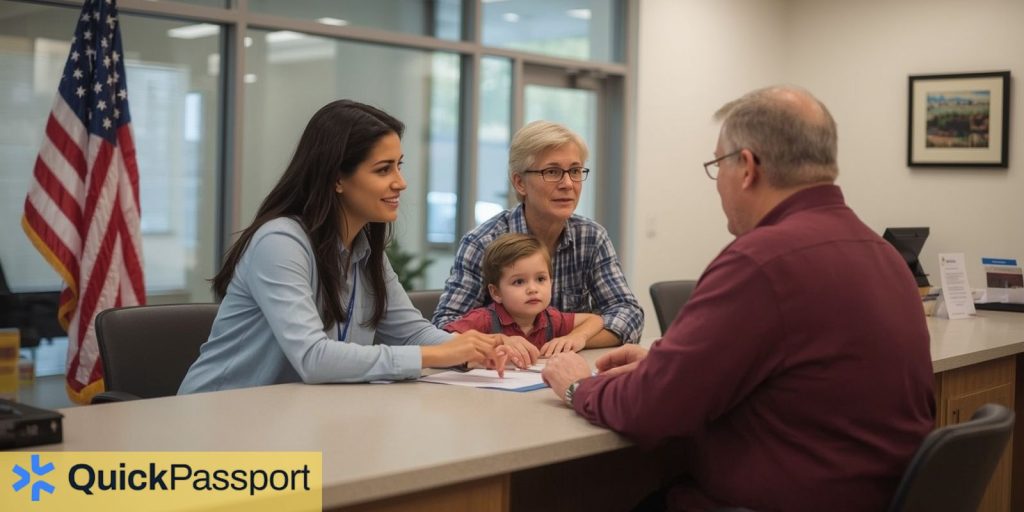
For children under 16, the minor passport application process requires both parents to appear in person with the child, unless specific exceptions apply. The passport issued to children in this age group is valid for only five years, compared to the ten-year validity period for adult passports. This shorter validity period reflects the significant physical changes children undergo during their early years, making longer-term photo identification less reliable.
Children aged 16 and 17 face different requirements that begin to transition toward adult procedures while maintaining some protections. These older minors may apply for their passports independently if they have proper identification and can demonstrate their own identity. However, they still need parental consent, which can be provided through the parent’s presence during application or through notarized consent forms.
The application forms themselves differ based on age. Children under 16 use Form DS-11, which must be completed but not signed until the family appears before a passport acceptance agent. Children 16 and 17 may also use Form DS-11 for first-time applications, but they have additional options for renewal if they previously held a passport and meet specific criteria.
Photo requirements remain consistent across age groups, but practical considerations vary. Infants and very young children can be challenging to photograph according to passport standards, which require the child to be looking directly at the camera with eyes open and a neutral expression. Parents may hold infants during photo sessions, but the parent’s hands and body must not be visible in the final photograph.
Processing times may vary based on the child’s age due to additional verification steps required for younger children. The passport agency conducts more thorough reviews of applications for very young children, particularly infants, to ensure all documentation is proper and that the application is legitimate. This additional scrutiny can extend processing times beyond the standard timeframes.
Renewal procedures also differ significantly by age. Children who received passports before age 16 cannot use the simplified renewal process (Form DS-82) even if they are now over 16. They must apply in person using Form DS-11, treating the application as a new passport rather than a renewal. This requirement exists because of the significant physical changes that occur during childhood and adolescence.
Processing Times and Expedited Services
Understanding processing times for minor passport applications is crucial for families planning international travel, as these timelines can be longer than adult passport processing due to additional verification requirements. The standard processing time for minor passport applications typically ranges from 6-8 weeks from the time the application is received by the passport agency, though these times can fluctuate based on seasonal demand and other factors.
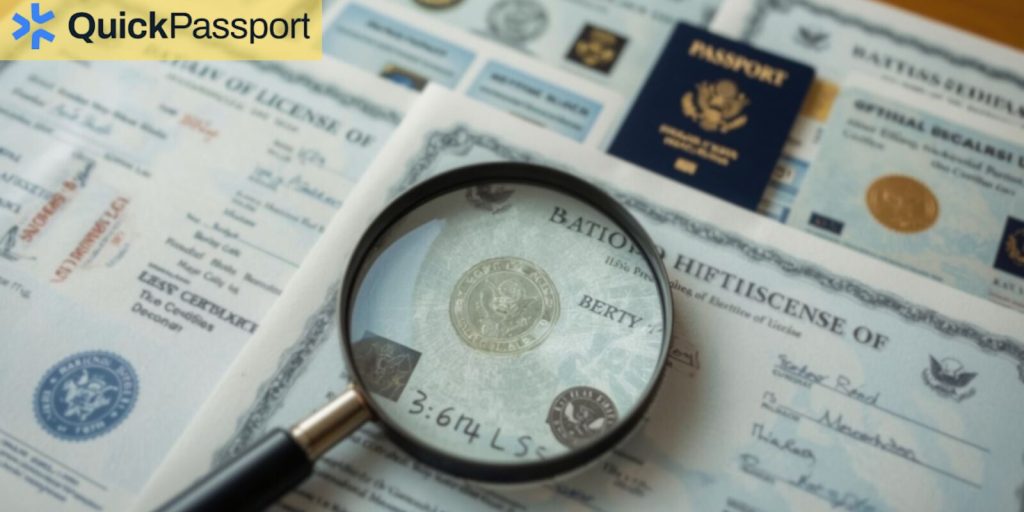
The minor passport application process involves additional verification steps that can extend processing times beyond those for adult applications. Passport officials conduct more thorough reviews of minor applications, particularly examining the documentation establishing parental relationships and consent. This extra scrutiny, while important for child protection, means that families should plan well in advance of any intended travel dates.
Expedited processing services are available for families who need passports more quickly, reducing the processing time to approximately 2-3 weeks for an additional fee. However, even expedited processing for minor applications may take longer than expedited adult applications due to the additional verification requirements. Families should factor this into their travel planning and not assume that expedited processing will match adult passport timelines.
Emergency passport services are available for families facing true emergencies, such as medical emergencies abroad or urgent business travel. These services require proof of the emergency and typically involve appointments at regional passport agencies. The definition of “emergency” is strict, and families must provide documentation supporting their urgent travel needs, such as medical records or death certificates for family emergencies abroad.
Seasonal variations significantly impact processing times for all passport applications, including minors. The period from February through August typically sees the highest demand as families prepare for summer travel, spring break trips, and other vacation periods. During peak seasons, even expedited processing may take longer than usual, making early application even more critical.
Third-party services like QuickPassport – Arlington can provide valuable assistance in navigating processing times and ensuring applications are properly prepared for submission. These services can help families understand current processing times, determine whether expedited services are necessary, and ensure all documentation is complete before submission, potentially avoiding delays that could extend processing times further.
Tracking application status becomes important for families monitoring their minor’s passport application progress. The passport agency provides online tracking systems that allow families to check the status of their applications using confirmation numbers provided at the time of submission. However, status updates may be less frequent for minor applications due to the additional review processes involved.
Frequently Asked Questions
Do both parents always need to appear in person for a minor’s passport application?
Not always. While both parents typically must appear with the child, exceptions exist. If one parent cannot appear, they may provide notarized consent using Form DS-3053. Parents with sole legal custody can apply alone with proper court documentation, and special circumstances like military deployment or incarceration have specific procedures.
What happens if one parent refuses to consent to the passport application?
If one parent refuses consent and both parents have legal rights to the child, the consenting parent may need to seek court intervention. Courts can sometimes grant permission for passport issuance over one parent’s objection, but this requires legal proceedings and appropriate documentation of the court’s decision.
Can grandparents or other relatives apply for a minor’s passport?
Generally, no. Only parents or legal guardians can apply for a minor’s passport. Grandparents or other relatives must have legal guardianship documentation to apply. Temporary or informal care arrangements typically don’t provide sufficient authority for passport applications.
How long is a minor’s passport valid?
Passports for children under 16 are valid for five years. Children who are 16 or 17 when they receive their passport get a ten-year validity period, the same as adults. The shorter validity for younger children accounts for significant physical changes during early childhood.
What if my child’s birth certificate doesn’t list both parents?
Additional documentation may be required to establish parental relationships. This might include adoption papers, court orders, or other legal documents. The specific requirements depend on the circumstances, and consulting with passport professionals can help determine what documentation is needed.
Can a minor’s passport be renewed using the mail-in process?
No, minors cannot use the simplified renewal process (Form DS-82) that allows mail-in renewals. All minor passport applications, including renewals, must be submitted in person with appropriate parental presence or consent, regardless of the child’s age when applying.
What should I do if my child’s passport application is denied?
If an application is denied, the passport agency will provide specific reasons for the denial. Common issues include insufficient documentation, problems with parental consent, or questions about the child’s citizenship. Addressing the specific issues raised and resubmitting with proper documentation is typically the next step.
How much does a minor’s passport cost?
Minor passport fees include the application fee and execution fee, totaling more than adult passport costs. Additional fees apply for expedited processing, overnight delivery, and other special services. Fees are subject to change, so checking current rates before applying is recommended.
Conclusion
Successfully navigating minor passport application requirements parents face requires careful preparation, thorough documentation, and understanding of the specific procedures that protect children while enabling family travel. The complexity of these requirements reflects the government’s commitment to preventing child abduction and ensuring that passport issuance occurs with proper parental consent and authority.
The minor passport application process, while more involved than adult applications, serves important protective purposes that benefit families and children. By understanding these requirements in advance, parents can gather necessary documentation, plan for processing times, and avoid common pitfalls that might delay their applications or disrupt travel plans.
Professional assistance from services like QuickPassport – Arlington can prove invaluable for families navigating this process, particularly those with complex circumstances or tight travel deadlines. These services help ensure that all documentation is properly prepared and that families understand exactly what to expect during the application process.
Early planning remains the key to successful minor passport applications. Families should begin the process well in advance of planned travel, allowing time for gathering documentation, addressing any issues that arise, and accommodating the longer processing times that minor applications may require. With proper preparation and understanding of the requirements, families can successfully obtain passports for their children and enjoy their international travel experiences with confidence.

